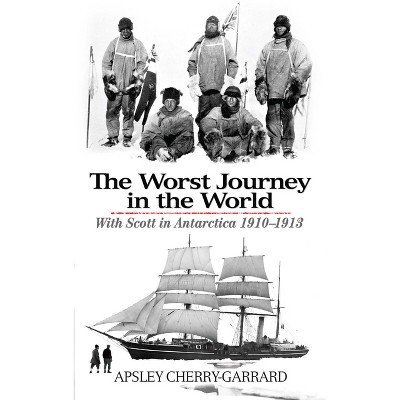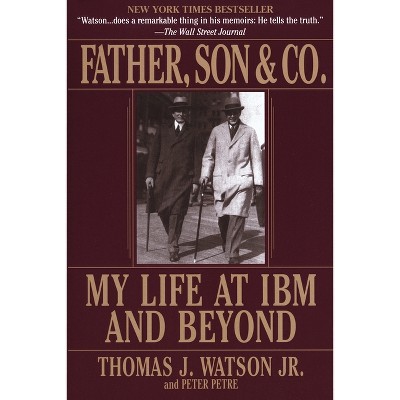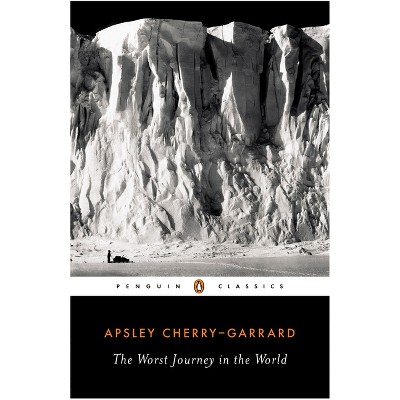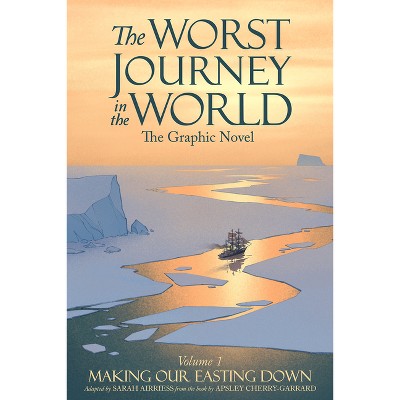Sponsored

The Worst Journey - by John Lewis-Stempel (Hardcover)
Out of Stock
Sponsored
About this item
Highlights
- During the terrible voyage, from the extreme north-west of Scotland to Russia's Arctic coast, the sailors faced 50- and even 100-foot waves, icebergs and hurricane-force winds.
- About the Author: John Lewis-Stempel is an award-winning writer predominantly known for his books on nature and history.
- 288 Pages
- History, Polar Regions
Description
Book Synopsis
During the terrible voyage, from the extreme north-west of Scotland to Russia's Arctic coast, the sailors faced 50- and even 100-foot waves, icebergs and hurricane-force winds. Such winds could peel the steel shields from the ships' guns and regularly blew men overboard. In summer, Oerlikon gunners would be at their guns for twenty hours a day; in the winter they often froze to death.
Even when the convoys reached Murmansk or Archangel there was no respite. Murmansk was about 25 miles from the front, which meant that there were enemy raids all day and food was short.
Despite all this the Royal Navy stuck to the convoys for four years, supplying Russia with planes, oil and other vital material, but, more importantly, by reassuring Stalin of Britain's commitment, the men of the Arctic convoys succeeded in keeping Russia in the war.
This is a book about the men of the convoys, about life aboard ship, drawing extensively on letters, diaries and reports, many from previously unpublished archives, as well as new interviews with the last surviving veterans.
The Worst Journey shadows the experience of the sailors on the seventy-eight Arctic convoys: from enlistment, through training, joining a ship, shore leave, action and death - or survival - at sea. It follows the fortunes of twenty-five sailors drawn from the bottom, middle and top of the navy's ranks. A sailor's position aboard ship played a critical role in whether he survived an attack or sinking, depending on where the ship was hit, or holed.
Review Quotes
A hugely moving account.--Oxford Times
A poignant and detailed study on what life was like at the front.--Good Book Guide
A superb study . . . Lewis-Stempel's marvelously evocative book is full of throat-catching moments . . . The result is the most moving single book on the Great War that I have ever read - and I have read many . . . his book pays the subalterns the respect they deserve by entering into their distant mindsets.--Literary Review
Compelling
Diaries and letters convey the inspiring spirit of these young men.--Sunday Telegraph
Every school pupil should read Six Weeks by John Lewis-Stempel before going on a First World War battlefield tour.
It is only rarely that a book deserves to be recommended unreservedly but John Lewis-Stempel's Six Weeks falls firmly into that category . . . This is a book that should be read by every young man who aspires to serve as an officer in the Army; it will educate him about how to behave in command of soldiers and about how to face the perils of war.--Guards Magazine
One of the most important new studies of the Great War.--Contemporary Review
Praise for Six Weeks
Best research resource ever. Beautiful book
This well researched book tells the harrowing story of the men - or adolescents, many of them - who unhesitatingly answered the call by War Minister Lord Kitchener for volunteers, and continued to answer it even after it became clear that the life expectancy of a subaltern in the trenches averaged only six weeks . . . Lewis-Stempel is excellent on life in the trenches . . . for all the horror and pity of their struggle, their legacy is our freedom.--Mail on Sunday
Woven with great narrative skill . . . presents an incomparable portrait of a generation.--Military Times
About the Author
John Lewis-Stempel is an award-winning writer predominantly known for his books on nature and history. His many books include the best-selling Six Weeks, about British frontline officers in the First World War, described by the Literary Review as 'the most moving book I have ever read on the First World War' and by actor Dan Stevens (Matthew Crawley in Downton Abbey) as 'the best research resource ever', The Autobiography of the British Soldier and The War Behind the Wire, about the life, death and glory of British PoWs in the First World War. His books have been published in languages as diverse as Brazilian Portuguese and Japanese and have sold more than a million copies. He has two degrees in history, writes books under the pen name Jon E. Lewis, is married with two children, and also farms in Herefordshire.Shipping details
Return details
Frequently bought together


Trending Non-Fiction






Discover more options









